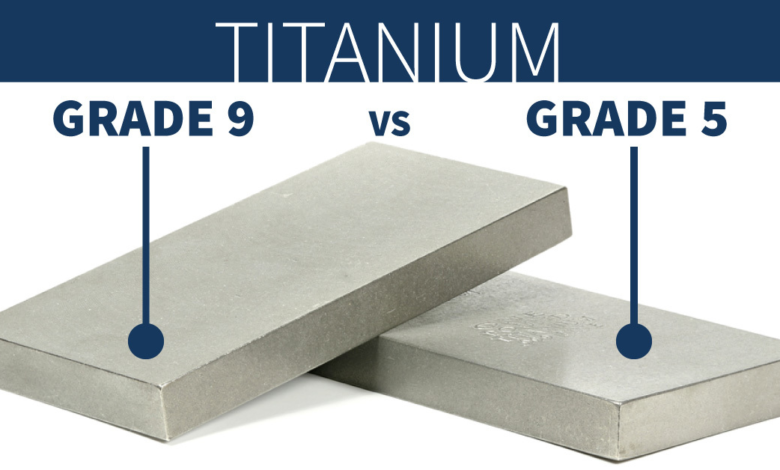Grades,Characteristics, and Application of Titanium alloys

Titanium alloys’ remarkable qualities have made them indispensable in a number of industries. These alloys, which combine titanium with additional elements, provide a combination of strength, low density, and superior resistance to corrosion. They are employed in many different fields, including aerospace and medical technology. This article explores various titanium alloy grades, their properties, and their wide range of uses.
Titanium Alloy Grades
Depending on their composition and mechanical characteristics, titanium alloys are divided into multiple grades. These grades can be broadly divided into three groups: beta alloys, alpha-beta alloys, and alpha alloys. Read more about Titanium alloys by visiting the website.
The composition of alpha alloys is mainly titanium with small amounts of oxygen and Aluminum; they do not contain any beta-stabilizing elements.
Characteristics:
Alpha alloys are known for their excellent corrosion resistance at high temperatures. They have moderate strength and are more weldable than other Titanium alloys. They also bear good creep resistance, making them suitable for high-temperature applications.
Applications:
Because of their high-temperature stability alpha alloys are frequently used in gas turbine engines and aircraft engine components. Their corrosion resistance also makes them useful in chemical processing equipment. They are also utilized in CNC Machining Materials.
Alpha-Beta alloys:
These alloys are composed of both alpha and beta phases, which are stabilized by elements such as aluminum, molybdenum, and vanadium. Ti-6AI-4V, an alpha-beta alloy with 6% aluminum and 4% vanadium, is the most often used kind.
Features:
Alpha-beta alloys provide a nice mix of ductility, toughness, and strength. They are usable for a range of applications since they may be heat-treated to enhance their mechanical qualities. These alloys are also reasonably simple to produce and have good weldability.
Applications:
The aerospace industry uses Ti-6AI-4V extensively for the production of jet engine and airframe parts. Because of its strength and biocompatibility, it can be used with medical implants like hip , knee and other joint replacements. Alpha-beta alloys are also utilized in recreational products, marine applications, and automobile parts.
Beta Alloys
The composition of beta alloys is rich in elements that stabilize the beta phase, such as iron, vanadium, and molybdenum. These alloys can also be heat treated to improve their properties.
Beta alloys are stabilized in high performance applications such as aircraft fasteners, spring, and high pressure containers because of their great strength. They are perfect for intricate forms and components because of their formability. In the medical area, beta alloys are also utilized for prosthetics and implants.
The attributes of alloys made titanium:
Titanium alloys are appropriate for a variety of applications due to their possession of numerous essential properties. Among these qualities are:
High strength to weight ratios:
The high strength to weight ratio of titanium alloys is well known. They weigh only roughly 45% of steel, but they are just robust. Because of this characteristic, they are perfect for uses like those in the aerospace and automotive industries where it is important to reduce weight without sacrificing strength.
Titanium alloys are biocompatible, which means that living tissue is not harmed by them. They are hence the preferred material for medical equipment and implants. Titanium is easily absorbed by the human body.
Heat resistance:
Titanium alloys are resistant to considerable deformation or strength loss at high temperatures. Because of their heat resistance, they can be used in high temperature settings like engines and gas turbines.
Low terminal expansion:
Titanium alloys do not considerably expand or contract in response to temperature variations because they have a low coefficient of thermal expansion. This characteristic is vital in applications where dimensional stability is required, including in aeronautical components and precision equipment.
Titanium alloy applications
Because of its special qualities, titanium alloys are used in many different sectors. Among the most popular applications are:
Aerospace:
One of the biggest users of titanium alloys is the aerospace sector. These alloys’ great strength, low weight, and ability to withstand high temperature make them useful for building airframes, engine parts, and landing gear. Because titanium alloys lighten an aircraft’s total weight, they also increase fuel efficiency.
Medical devices:
Dental implants, spinal devices, and hip and knee replacements are just a few of the implants that titanium alloys are widely utilized in the medical industry. They are perfect for long term implantations within the human body.
Vehicle industry:
They are utilized in high performance automobiles for parts. Vehicle weight can be decreased with the usage of titanium alloys, improving performance and fuel economy.
Marine applications:
They can be used in maritime environments because they don’t corrode in seawater. The longevity of titanium alloys in seawater condition increases the equipment’s service life for marine application.
Chemical processing:
They are used in the production of equipment for handling corrosive chemicals in the chemical processing sector. They are excellent in their resistance to a broad variety of acid, alkalis, and solvents.
Conclusion:
Titanium alloys are essential for technology and engineering. Due to their special qualities, such as high strength to weight ratio they are ideal for different uses. With increase in technological advancements, use of titanium alloys is anticipated to increase across a range of industries.



